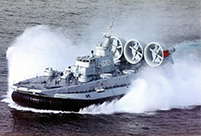

Tensions have risen on the Korean peninsula recently after North Korea launched a satellite with ballistic missile technology and a fourth nuclear test despite the opposition of the international community.
The U.N. is now discussing further sanctions on North Korea in order to stabilize the peninsula.
In the meantime, with the nuclear issue as an excuse, the U.S. claimed that it will start formal talks with South Korea on placing the anti-missile system THAAD on North Korea's doorstep.
Such an act, however, will further complicate regional security.
Given the current backdrop, it is necessary to take measures to ensure the peace and stability of the peninsula.
However, it would be troublesome if anyone takes advantage of this “opportunity” to bring unwanted results. What the U.S. has done has exposed its mistakes in dealing with the peninsular issue.
First of all, it adopts a cold-war mentality on the issue by always resorting to confrontation. The U.S. has stationed troops in the south of the peninsula for decades. It was also the U.S. that initiated the nuclearization of the peninsula by deploying nuclear weapons in South Korea during the Cold War.
It maintained the same logic even into the new century. Its last president refused to hold dialogue with North Korea whereas the current one also dodged contact by holding so-called “strategic patience”.
This is undoubtedly an important reason for the escalated tensions on the peninsula.
The U.S. has been portraying North Korea, Iran and Iraq as an “axis of evil”. But it once brought Iraq great trouble by launching a war against the country without approval of the U.N.
The superpower failed to find any evidence to prove that Iraq was developing weapons of mass destruction as it claimed, but instead triggered horrific terrorist activities in the region.
When the nuclear issue came to Iran, the U.S. changed its approach but came up with better results.
With cooperation and pressure from the international society, a comprehensive agreement on the Iranian nuclear issue was finally reached last year though dialogue rather than confrontation.
However, this time dialogue is not an option. The U.S. still counters North Korea with a cold war mindset.
Secondly, the U.S. attaches its self-interests on the issue.
The U.S. and South Korea did have a Mutual Defense Treaty, but its sole purpose is for defense. It is understandable that South Korea took some steps to counter its neighbor, but the bottom line should be legitimate self defense, not so-called “self defense” at the risk of peninsular security with a spillover effect on northeast Asia and the Asia-Pacific region at large.
It is known to all that the THAAD system covers a range that is far beyond the needs of defense of the Korean peninsula.
The possible THAAD system in South Korea will directly threaten China’s strategic and security interests and lead to a security imbalance in northeast Asia and the Asia-Pacific region, which could spark strategic rebalancing across a wider range.
This move of the U.S. echoes with an old Chinese saying, "Sima Zhao's trick is obvious to every man in the street — the villainous design is apparent."
Thirdly, what the U.S. did contradicts itself. The U.S. is a stakeholder of the peninsular issue, yet it applies entirely different policies to the northern and southern parts.
On the one hand it put enormous pressure on North Korea, but on the other offered a guarantee of safety to South Korea. Such acts will by no means ease the tension.
The U.S. kept saying it will address the nuclear issue, but tensions were escalated due to a lack of contact and trusts between the U.S. and North Korea. The stance that the U.S. holds on the peninsular issue is clearly self-contradictory.
Therefore it begs the question: is the superpower incapable of or insincere in its attempts to solve the nuclear issue? Furthermore, does the U.S. really want to resolve the nuclear issue or expect it to turn into a gateway to exert its influence in the Asia-Pacific region and the whole world?
What the U.S. should learn is that when you lift a rock, it could land on your own feet. Being stubborn on the peninsular issue will neither promote peace and stability in the Asia-Pacific region nor realize its own wishful thinking.
(This article is edited and translated from 美国别在半岛问题上犯浑(望海楼), Source: People's Daily Overseas Edition. The author is the Deputy Dean and a professor of Fudan University’s Institute of International Studies)
 Have you ever taken these beautiful subways in China?
Have you ever taken these beautiful subways in China? Chinese beauties, foreign models meet in Chengdu
Chinese beauties, foreign models meet in Chengdu Awesome! Aerial pictures taken on J-11 fighter
Awesome! Aerial pictures taken on J-11 fighter A foreign girl explains what China should be proud of
A foreign girl explains what China should be proud of Chinese navy's air-cushioned landing craft in pictures
Chinese navy's air-cushioned landing craft in pictures Chinese pole dancing master opens class in Tianjin
Chinese pole dancing master opens class in Tianjin Splendid Sichuan after snow
Splendid Sichuan after snow College girl of Vancouver crowned Miss Chinese Int'l 2016
College girl of Vancouver crowned Miss Chinese Int'l 2016 Pentagonal Mart becomes the largest vacant building in Shanghai
Pentagonal Mart becomes the largest vacant building in Shanghai Top 20 hottest women in the world in 2014
Top 20 hottest women in the world in 2014 Top 10 hardest languages to learn
Top 10 hardest languages to learn 10 Chinese female stars with most beautiful faces
10 Chinese female stars with most beautiful faces China’s Top 10 Unique Bridges, Highways and Roads
China’s Top 10 Unique Bridges, Highways and Roads Time for tourists to learn spirit of adventure
Time for tourists to learn spirit of adventure LGBT groups use interactive theater to provoke discussion
LGBT groups use interactive theater to provoke discussion Superstition, two-child policy set to drive up birth rate in 2016
Superstition, two-child policy set to drive up birth rate in 2016 Cellist Ouyang Nana responds to critics of her decision to leave the Curtis Institute of Music
Cellist Ouyang Nana responds to critics of her decision to leave the Curtis Institute of MusicDay|Week